Best Baby Car Seat From Infant to Toddler
Best car seats 2021: Safe car seats for babies and infants
Included in this guide:
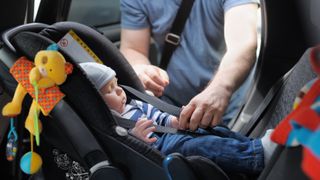
It's essential that you get the best car seat possible for your baby. Not only does it need to protect your child from injury in the event of a crash, but it needs to be comfortable to help them sleep when you're out on the road. There are so many to choose from on the market though that it can be a little overwhelming.
Luckily, we've done the work for you. After extensive research, taking into account the safety ratings from the National Highway Transportation Safety Administration, we've found the best car seats out there. So whatever your budget, there's one here for you.
- Best baby monitors
- Best strollers
What are the best car seats?
Based on our research, we recommend the Chicco KeyFit 30 as the best car seat overall. It ticks every box, being easy to install and compatible with a range of strollers. It also achieved good crash test ratings and it comes at a reasonable price too. If you're constantly in and out of vehicles, then the Doona Infant Car Seat might be the one for you. It can be converted from a car seat to a stroller at the touch of a button. If you're after a convertible car seat, then the Britax Emblem Convertible Car Seat is the best. It's easy to use and performed well in crash tests. Although it's admittedly on the heavy-side.
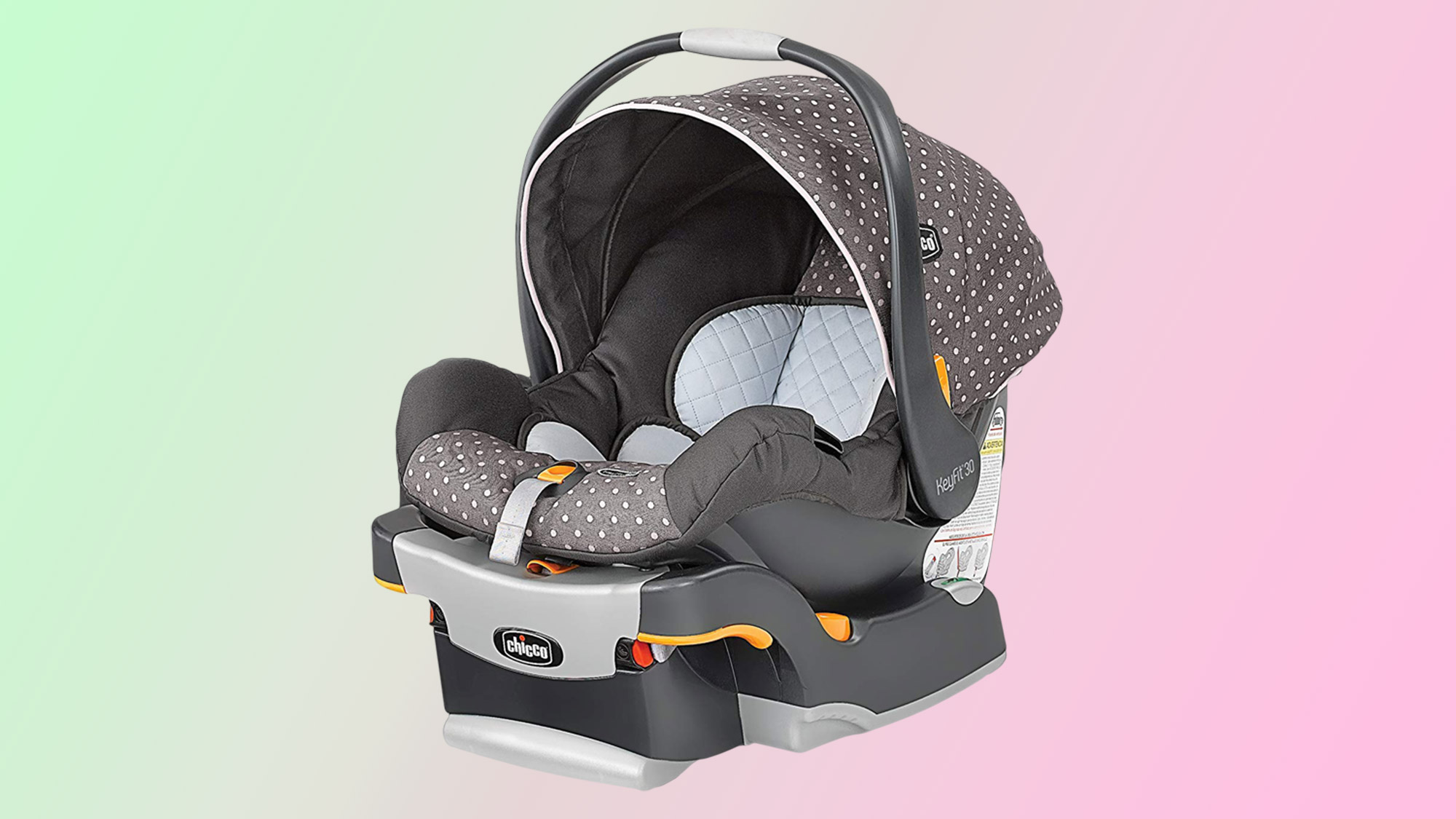
1. Chicco KeyFit 30
The best car seat overall for babies
Specifications
NHTSA Rating: 4.2/5
Seat Dimensions: 22 x 17 x 24 inches
Seat Weight: 9.2 pounds
Weight: 4-30 pounds
Height: Up to 30 inches
Reasons to buy
+Easy install with LATCH system +Scored well in crash tests +Compatible with a variety of strollers
Reasons to avoid
-Hard to install without the base -Not the lightest to cart around
The Chicco KeyFit 30 is often voted the best car seat by reviewers for its overall versatility and safety offerings. It performs as well as pricier car seat models in crash tests, and it's easy to install insofar as you elect to use the Lower Anchors and Tethers for CHildren (LATCH) system. It's also compatible with a variety of third-party strollers, including our top pick for the best strollers, the Baby Jogger City Mini 2; our top pick for versatility, the Uppababy Vista; and our favorite jogging stroller, the Thule Urban Glide 2.
The Chicco KeyFit 30 ranked highly in front-impact crash testing conducted by the NHTSA, as well as in third-party crash tests conducted by The Wirecutter and BabyGear Lab. The Chicco is not the lightest car seat, but you can breezily cart it from the car to the house and back again with the included base.
It's not too much of a chore to clean either, as the Chicco may be spot-cleaned with mild soap and water. If you elect for the removable fabric, you can throw that into the wash with the rest of your delicates.
There are other models of the KeyFit 30 to consider, though they increase in price. The KeyFit 30 Magic features a reversible newborn positioner, while the Zip offers a removable zipper footmuff, canopy and seat cover for popping into the wash. The KeyFit 30 Zip Air ($240) has all the features of the first two, plus a breathable backrest. All KeyFit 30s have similar crash test ratings since they're all built on the same car-seat base.
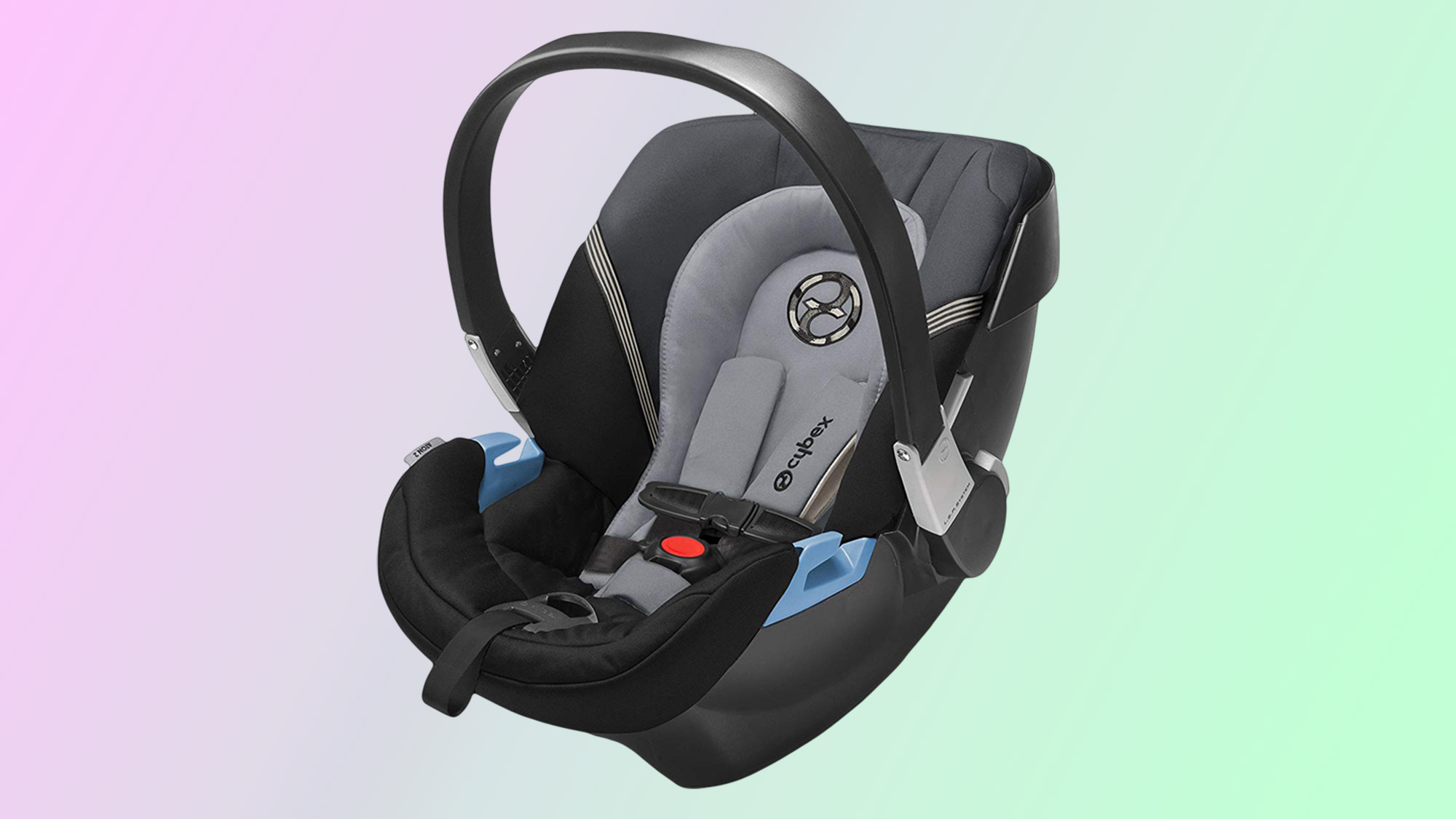
2. Cybex Aton 2
The best car seat for parents who want peace of mind
Specifications
NHTSA Rating: 4/5
Seat Dimensions: 25 x 17.25 x 15.25 inches
Seat Weight: 9.5 pounds
Weight: 4-35 pounds
Height: Up to 30 inches
Reasons to buy
+Best crash results +Comfortable to carry
Reasons to avoid
-Hard to use, sometimes frustrating -Bad choice for public transportation
If absolute safety is what you're after, the Cybex Aton 2 could be the best car seat for you. This baby car seat has a steel load leg, which is effectively a metal post that helps the brace the rear of the car seat against the floor of the car. While it can help provide an additional layer of safety in case of an emergency, the NHTSA does not factor it into its overall crash test results. There's no actual data to back up Cybex's marketing claim that the reinforced bar makes its car seat safer than the rest.
Regardless, the load leg is a feature that's unique to the Cybex, and it can help provide peace of mind for cautious parents. You will have to make some lifestyle adjustments around it, though, as you can't seat any passengers next to the car seat when the bar is installed. And the load leg doesn't hold up well in the middle, so it's either the left side or the right side for the Cybex Aton 2.
If the steel load leg is enough to catch your eye, be prepared for a little frustration. The Aton 2 features a finicky carrier handle, though it is comfortable to hold since it lacks sharp corners. It's challenging to snap in and take out of its car seat base, and hard to install using the seatbelt method, so it's not fit for the occasional taxi ride.
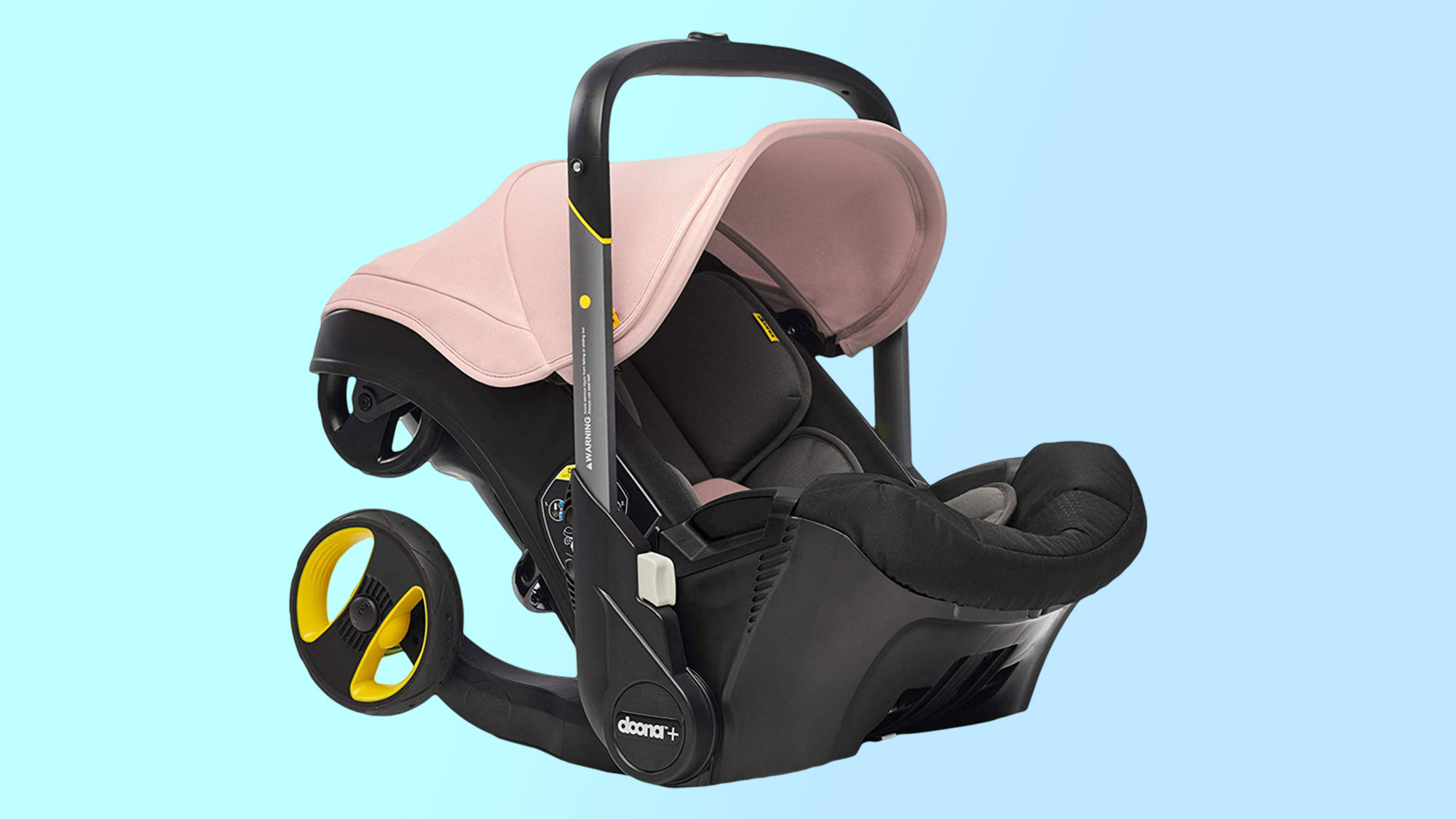
3. Doona Infant Car Seat
Car seat and stroller in one
Specifications
NHTSA Rating: 4.8/5
Folded: 23.6 x 17.3 x 26 inches
Unfolded: 40 x 17.3 x 32.3 inches
Seat Weight: 16.5 pounds
Weight: 4-35 pounds
Height: Up to 32 inches
Reasons to buy
+Great for city dwellers +Lets you push instead of carry baby
Reasons to avoid
-Hefty -Pricey
If you're constantly removing the car seat from you're vehicle, or you're shuffling in and out of taxis or rideshare vehicles, the Doona Car Seat and Stroller might be the best car seat for you and your baby.
With the touch of a button, the seat's wheels fold down and extend out to stroller length, which makes getting in and out of the car a more effortless endeavor than you would have with a full-size stroller with car seat attachment. However, the Doona car seat is a bit hefty, weighing at 16.8 pounds, nearly twice as heavy as our top pick, but that's because you're opting for a two-in-one type of product.
On the upside, you'll likely be pushing this car seat around more often than carrying it because of its double-use functionality. And it's sized properly for planes, so you can roll it down the aisle and then strap in your baby for the long ride to wherever.
Inside an Uber or Lyft, the Doona utilizes the shoulder strap of the vehicle belt to stay secure. If you do have a car, there's a LATCH base to anchor the Doona sturdily inside. Don't worry about it not being a traditional car seat: the Doona also scored well in the NHTSA's crash and usability tests.
The only major downside of the Doona, besides its relative heft, is that it's quite pricey. Then again, you're paying for the convenience of a car seat that converts to a stroller for everyday urban adventures.
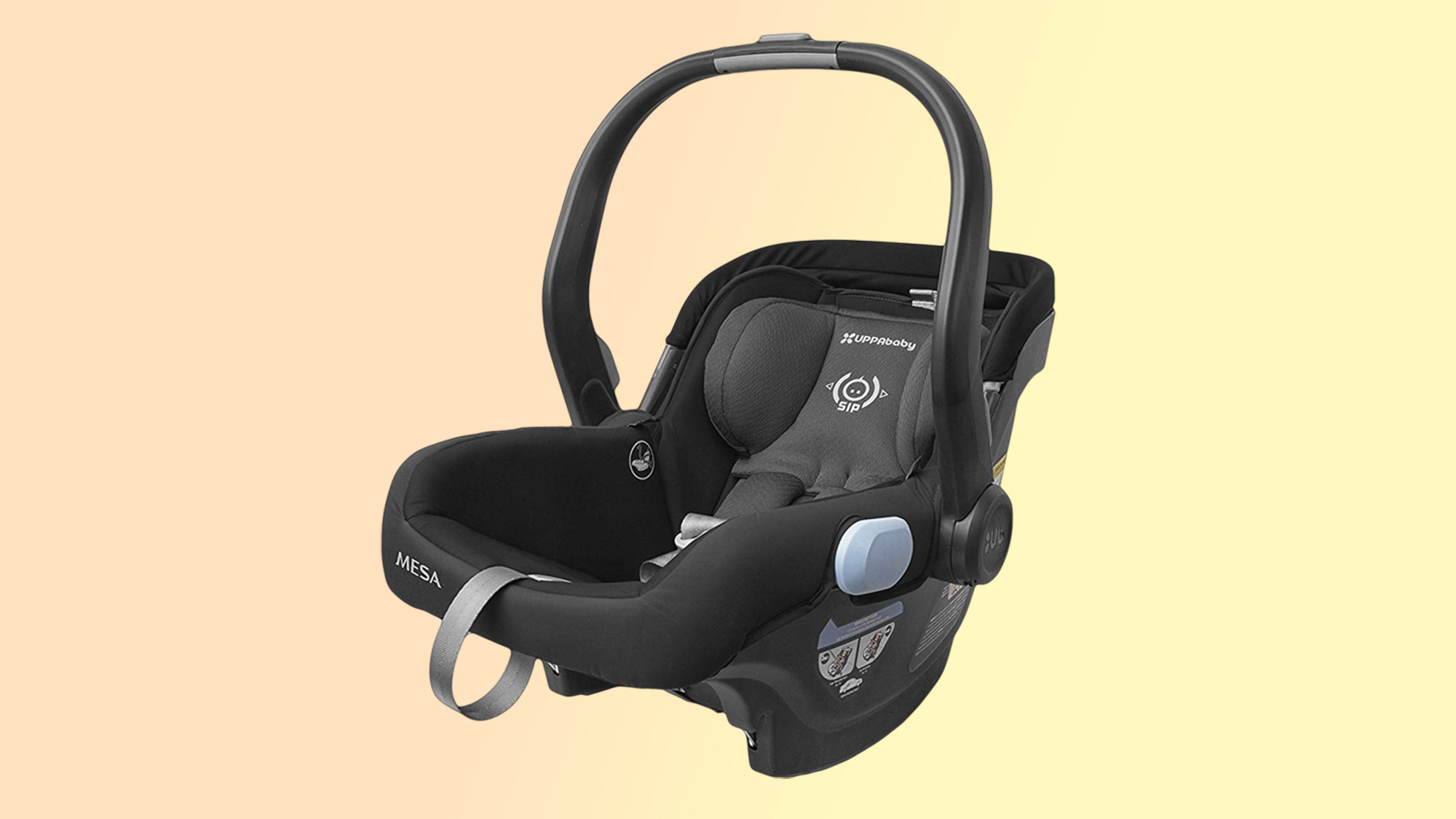
4. Uppababy MESA
The easiest-to-install baby car seat
Specifications
NHTSA Rating: 5/5
Seat Dimensions: 25.8 x 17 x 23 inches
Seat Weight: 9.9 pounds
Weight: 4-35 pounds
Height: Up to 32 inches
Reasons to buy
+Easy to install with base and belt +Scored well in crash-test results
Reasons to avoid
-Heavier than our top pick
Like other Uppababy products, the Mesa baby car seat is impressive even though it is a bit pricey. This particular car seat offers a variety of installation options, making it a reliable choice for either suburban families with a minivan or urban dwellers who rely on public transportation.
The Mesa is one of the most convenient car seats to install with or without the base, and even includes color-coded pathways to help you remember where to thread the belt and how to connect it. Once it's all strapped in, the Mesa feels secure and stable.
The Mesa received a five-star rating from the NHTSA for its ease of installment and includes a headrest with side-impact protection (though there is no data-driven proof that the headrest offers more impact protection).
Its LATCH anchors are conveniently retractable for when they're not in use, and the included harness height adjusters come in handy for a baby's growing body. The seat features thicker, higher-quality fabric than previous models, and the fabric is fire-resistant. The Mesa is also a slick-looking car seat, especially when paired with either the Uppababy Cruz or Vista strollers.
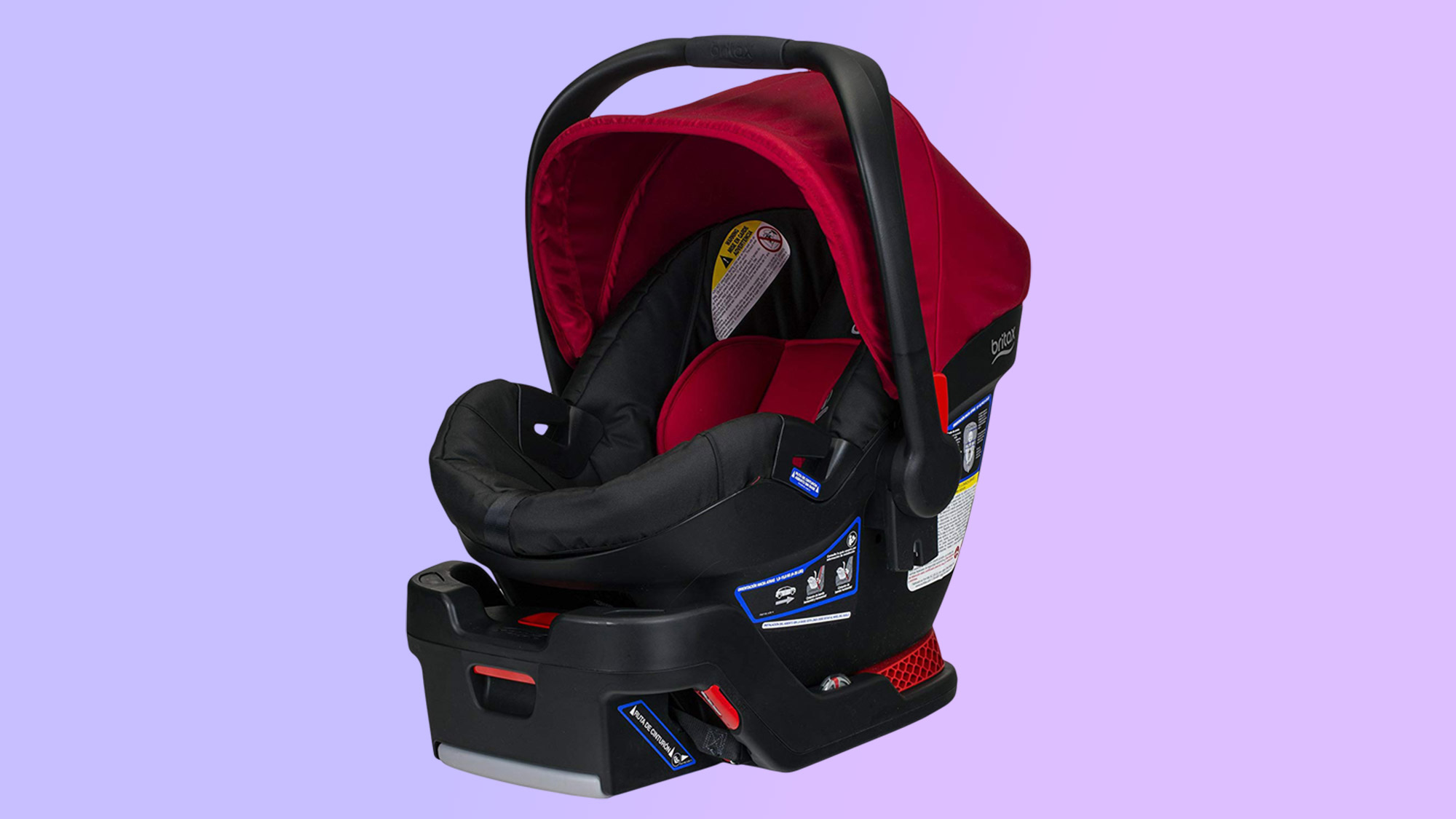
5. Britax B-Safe 35
Best for taller babies
Specifications
NHTSA Rating: 4.8/5
Seat Dimensions: 26.5 x 17.75 x 25 inches
Seat Weight: 10 pounds
Weight: 4-35 pounds
Height: Up to 32 inches
Reasons to buy
+Easy to use with LATCH system +Accommodates taller babies +Performed well in crash tests
Reasons to avoid
-Heavy -Not compatible with as many strollers
One of the best car seats for those concerned about safety, the Britax B-Safe 35 performed on a par with the Chicco KeyFit 30 in the NHTSA's crash and efficiency ratings, as well as in Wirecutter's independent crash tests. Its shell is retrofitted with an energy-absorbing steel base and features side impact protection with Britax's SafeCell system, as well as impact-resistant foam in the carrier itself.
The Britax is reasonably straightforward to install in your car and latch into its base, and there's even a belt lock-off to ensure that the seat stays fixed. The B-Safe 35 also offers a higher height and weight limit, so there is room to grow. However, some customer reviews have complained that the seat's interior can be a bit narrow for taller babies.
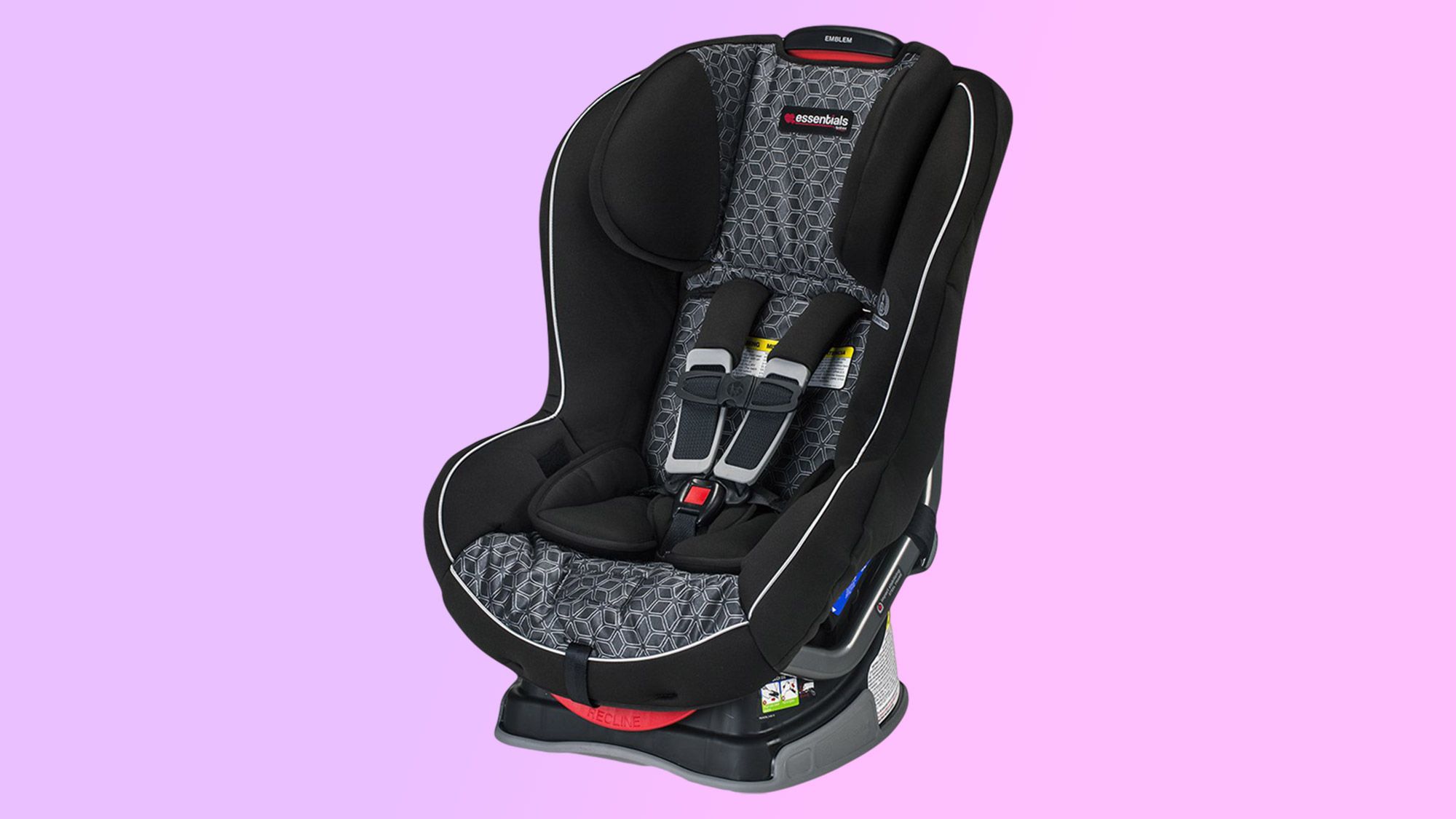
6. Britax Emblem Convertible Car Seat
Best convertible car seat
Specifications
NHTSA Rating: 4/5
Seat Dimensions: 21 x 18.5 x 26 inches
Seat Weight: 19.5 pounds
Weight: 5-40 pounds
Height: Up to 49 inches
Reasons to buy
+Easy to use +Performed well in crash tests +Well-priced
Reasons to avoid
-Heavy -Hard to secure with seatbelt
While we don't suggest you buy a convertible car seat for your baby in the first year, you might decide you want to buy something now anyway, so that you don't have to worry about it a year and a half down the line. The Britax Emblem is worth a try for parents with few specific needs, who don't mind shuffling baby in-and-out inside something slightly larger than the norm.
The Emblem is an attractive car seat with ample padding for the baby to rest against. It's as easy to install as the B-Safe 35, featuring LATCH connectors and built-in lock-offs to keep the seat securely in place. It doesn't secure quickly using the seatbelt method, so it's not a prime choice for parents moving in and out of vehicles.
The Emblem can handle rear-facing babies up to 40 pounds and forward-facing toddlers up to 65 pounds, allowing for a bit of growing room between birth and when it's time to upgrade to a toddler-specific car seat.
It flips around, so your infant is rear-seated on the ride home from the hospital, and can be flipped to face forward when they reach the initial weight limit. The Emblem also performed well in crash tests, offering an extra bit of protection in the head area compared to similar models in its class.
What to look for when buying a baby car seat
Similar to bike helmets, the foam inside an infant car seat has a shelf life; once that date has passed, the foam won't support impact as well as before. It's essential that you consider this before accepting a used car seat, even from a friend or family member. Make sure that the expiration date will last until after your baby no longer needs the seat. If your seat has been in a crash then it will need replacing immediately.
There are two types of car seat to choose from — infant and convertible. Convertibles tend not to be recommended to new parents as infant seats are specifically designed to hold newborn babies. It's better to upgrade from an infant seat to a convertible once your baby reaches the right weight or height.
Infant seats are also the more convenient of the two because they're so easy to place in and take out of the car. They're much better to use on public transportation too or if you generally carry your baby in tow.
You should consider some criteria before choosing an infant car seat. These helpful suggestions come by way of Baby Gear Lab.
Size and weight limits: Most infant car seats are suitable for babies up to 30 pounds, though we've included a few picks for wiggle room up to 32 pounds. But the height limit is the number to pay attention to if you're worried your baby will outgrow the car seat. The average baby will reach 32 inches between 18 and 19 months, so definitely plan to upgrade to a convertible car seat after their first birthday.
Crash tests: Every car seat sold in the United States must meet a federal crash-test safety standard. The crash test is administered by the National Highway Transportation Safety Administration (NHTSA).
Each seat is subjected to crash testing in a facility that's designed to simulate collisions using a sled and crash-test baby dummies. The NHTSA measures the amount of force exerted on a dummy baby's head and chest based on a 30-mile-per-hour collision simulation. Review sites like The Wirecutter and BabyGear Lab also commission independent crash testing to corroborate the NHTSA's numbers.
Some manufacturers will attempt to market the "side impact protection" of their particular car seat, but the NHTSA doesn't currently test for that. The extra safety features are indeed nice to have, and while we've made mention of where that's applied for your peace of mind, it should not be a primary factor in your decision-making.
Construction: Infant car seats tend to be made of two kinds of material: a hard plastic shell with a dense foam padding as the second layer. The shell supplies the support, and then there's an inner layer of energy-absorbing foam inside. What cradles your baby is extra padding, often covered in a fabric that can be spot cleaned or removed for throwing in the wash. That extra padding does not do much to protect your baby in the event of a crash unless federally mandated tests explicitly mention it.
Anchoring: There are two ways to anchor an infant car seat. First is the LATCH method (Lower Anchors and Tethers for CHildren). This standard arrived in 2002, and cars manufactured after this time have LATCH connectors available on the left and right side of the back seat.
The LATCH method is the best way to anchor in a baby car seat, as bases are made to accommodate this universal offering. As a bonus, many bases will include color-coded indicators and even a level to help you ensure it's steady and sufficiently tightened against the back seat.
The second method is the seatbelt method, which you'll have to learn if you don't plan to use a base or you're transporting the car seat inside a taxicab or rideshare. (This method also works on airplanes.)
There are separate American and European standards, and both start by routing the lap belt over the baby's lap area. The European rule requires the shoulder belt, which helps hold the car seat more steadily in place, for added protection..
Regardless of which method you choose, you'll want to place the car seat on either the left side or the right side of the backseat — never the middle. Studies have shown this placement can help reduce injury by more than 40 percent.
For help installing your car seat, contact your local police or fire station to ensure the base is properly connected. There's also an online resource called Seat Check that lets you search for inspection stations.
How we picked the best car seat
As we searched for the best car seats, we factored in criteria you might consider when looking for one.
Firstly, where will the car seat be placed? Should it be a permanent fixture in the car or do you rely on public transport from time-to-time? Will it be comfortable to carry around and easy to maneuver in tight spaces?
This was part of our 'ease of use' assessment where we considered the user-friendliness of each design. We then balanced that up with the pros and cons. For instance, while the Cybex Aton 2 can be frustrating to use, it does offer added safety features.
We took into consideration how well each car seat scored in federally-mandated tests and cross-referenced that with any independent testing done by trusted baby gear review sites, such as BabyGear Lab, The Wirecutter, and Car Seats for the Littles.
Finally, we considered how many strollers each seat is compatible with. The best ones will fit most high street brands, while others might need you to make a specific purchase.
Florence Ion has worked for Ars Technica, PC World, and Android Central, before freelancing for several tech publications, including Tom's Guide. She's currently a staff writer at Gizmodo, and you can watch her as the host of All About Android on the This Week in Tech network.
Best Baby Car Seat From Infant to Toddler
Source: https://www.tomsguide.com/uk/best-picks/best-baby-car-seats
0 Response to "Best Baby Car Seat From Infant to Toddler"
Post a Comment